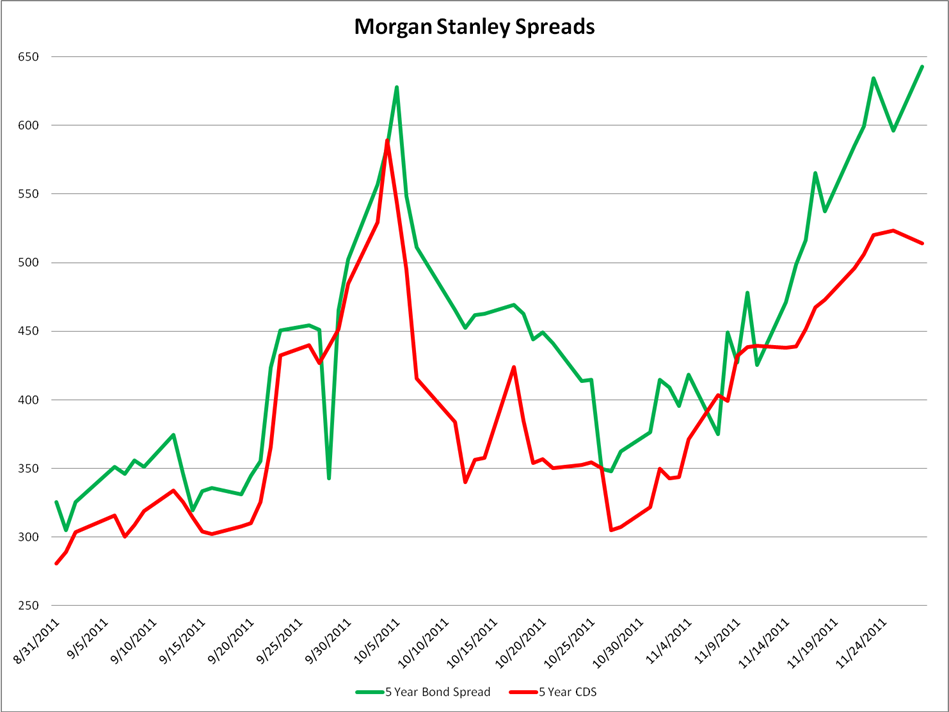Financial Bonds Are Hit By Deleveraging – Basis Widening
Remember how many people were complaining about how illiquid CDS was. What a bad indicator it was compared to bonds. That it was unfair that MS bonds were under pressure due to CDS? That was the “spin” back in late September and early October. It didn’t matter that CDS volumes are higher than any individual bond and compare well to total volumes in bonds. It didn’t matter that CDS trades with a tighter bid/offer than the bonds and both sides are really, rather than an “order catching” run that is what the bond market has reverted to.
This just looks at the MS 3.8% of April 2016 bond spread vs the UST 2% of April 2016 and the 5 year CDS spread. You can see that back in the darkest moments, CDS was close to 600 (and I believe it traded at 600). Bonds were slightly wider than CDS back then. They both rallied throughout the month of October with CDS leading the way, but over the past couple of weeks, we have seen the “basis” blow out. MS bonds are now back to their widest levels, but CDS is actually contained.
This reminds me a lot of August 2007. The basis was blowing out, because the banks had to cut inventory. No one wanted to hold bonds. Banks were trying to deleverage so the basis started moving out. That continued until it climaxed in late 2008 (the Citadel “basis” phone call, was pretty much the end of the capitulation).
On a “Z-spread” basis, the move isn’t quite as dramatic as 5 year swap spreads have moved out from 30 bps to 40 bps, that that only explains 10 bps of the spread differential, confirming that this move is a sign of aversion to using cash, and deleveraging.
The price of the bonds was about 87.5 at their lows in early October. The bonds are back to trading at that price, so the spread widening isn’t the “good” type (bonds going up in price but widening relative to treasuries). So with prices on the bonds back to the lows, spreads back to the wides, but the CDS reasonably contained, I would come to the conclusion that demand for bonds (financials in particular) is weak, and it is related to deleveraging and not just risk aversion.
Someone should thank all the CDS shorts who are wondering why CDS spreads won’t widen and are probably the main source of buying in the bond market.
I didn’t mean to pick on MS, it was just the first name that Nahil suggested to take a close look at. On the bright side, depending whether MS uses CDS or bond spreads to calculate their DVA, they won’t have to report a big DVA loss for the quarter.

